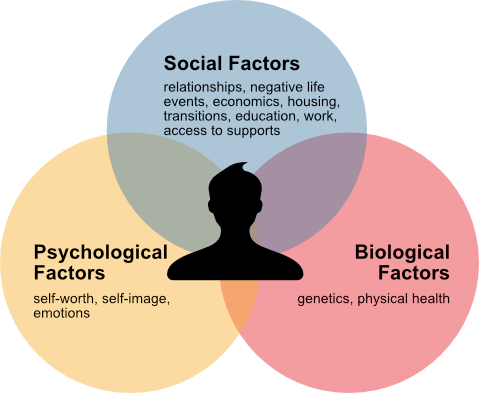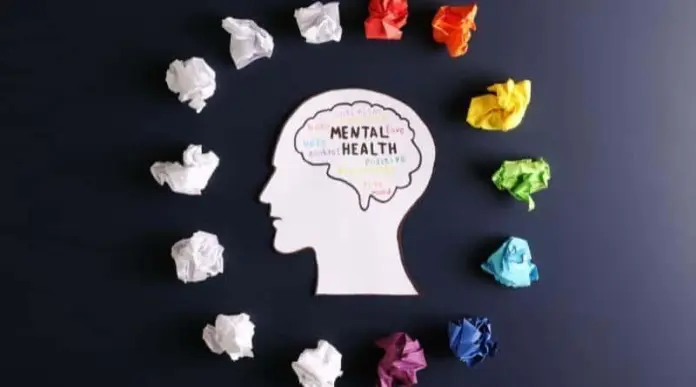Unlock the Secrets to a Thriving Mind! Dive into the dynamic world of mental health with our ultimate guide! It’s time to break the stigma, embrace well-being, and let the journey to a happier mind begin!
Definition:
Mental health is not simply the absence of mental illness. It’s a dynamic state of well-being that encompasses our emotional, psychological, and social aspects.It influences how we think, feel, and act, impacting our ability to:
- Cope with life’s stressors
- Relate to others in healthy ways
- Make positive choices
- Function effectively in daily life
Mental health is dynamic because it can change throughout our lives, influenced by various factors, just like our physical health.
Factors Influencing Mental Health:
Our mental well-being is affected by a complex interplay of factors:

- Biological: Brain chemistry, genetics, and even physical health conditions can play a role.
- Psychological: Our thoughts, beliefs, coping mechanisms, and personality can contribute to mental health.
- Environmental: Social factors like relationships, work-life balance, economic status, and exposure to trauma can also influence our mental well-being.
Continuum of Mental Health:
Mental health exists on a spectrum, not as a binary state of “healthy” or “ill.”
- At one end lies good mental health, characterized by feelings of well-being, positive coping skills, and healthy relationships.
- On the other end lies mental illness, where persistent and significant difficulties in thinking, feeling, or functioning are present.
- In between these extremes lies a broad range of experiences, where individuals may face temporary challenges or mild, non-clinical symptoms that don’t necessarily disrupt their daily lives.
Common Indicators:
Signs of good mental health:
- Feeling good about yourself and your life
- Having healthy relationships
- Managing stress effectively
- Coping with challenges in a healthy way
- Feeling connected to others and your community
Potential warning signs:
- Feeling persistently sad, anxious, or angry
- Changes in sleep or appetite
- Difficulty concentrating or making decisions
- Withdrawal from social activities
- Thoughts of self-harm or suicide
Seeking Help:
If you’re experiencing any concerns about your mental health, seeking professional support is crucial. Just like with physical health issues, we don’t hesitate to reach out to doctors when needed. Mental health professionals can provide:
- Diagnosis and treatment for mental health conditions
- Guidance and support for managing stress and emotional challenges
- Tools and techniques to improve coping skills and overall well-being
Dispelling Myths:
It’s important to remember that:
- Seeking help is a sign of strength, not weakness.
- Mental health conditions are common, affecting millions of people worldwide.
- Treatment is effective and can significantly improve quality of life.
Remember, you are not alone. If you’re struggling, reach out for help. There are many resources available to support you on your journey towards mental well-being.

